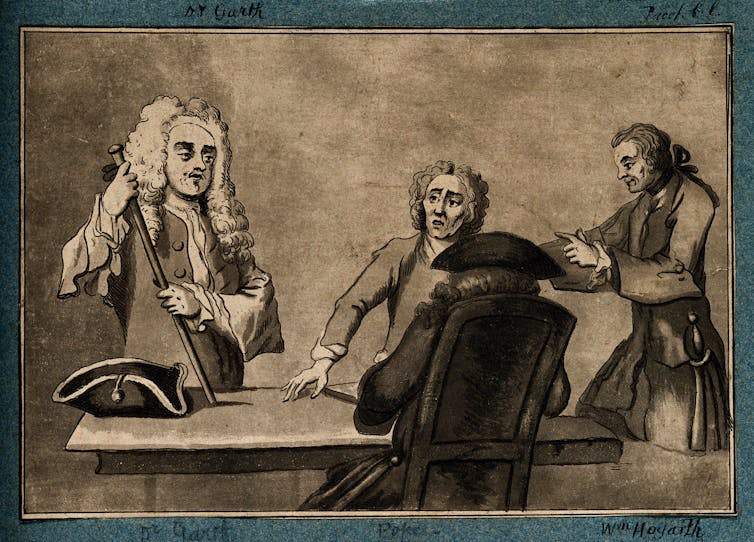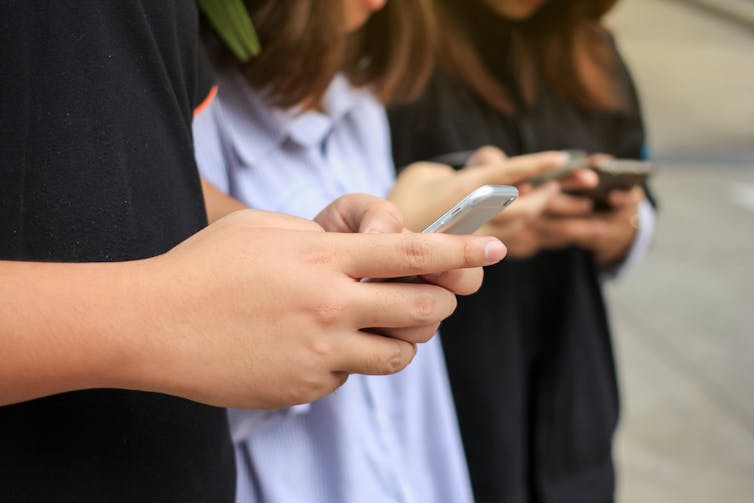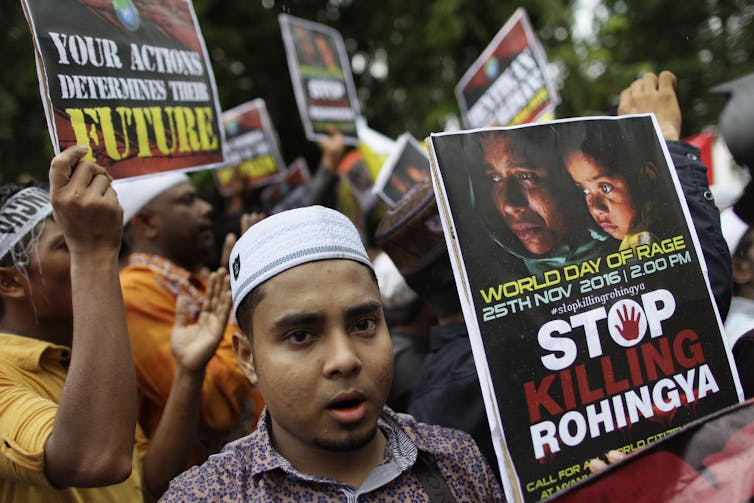A Brief Colonial History Of Ceylon(SriLanka)
Sri Lanka: One Island Two Nations
A Brief Colonial History Of Ceylon(SriLanka)
Sri Lanka: One Island Two Nations
(Full Story)
Search This Blog
Back to 500BC.
==========================
Thiranjala Weerasinghe sj.- One Island Two Nations
?????????????????????????????????????????????????Thursday, May 5, 2022
Elon Musk’s proposed takeover of Twitter raises questions about its role in the digital social infrastructure

Internet technologies have meant that the public sphere has now become digital, but what does that mean for its ownership? (Gian Cescon/Unsplash)
Published: May 4, 2022
Over the last few weeks, there has been a lot of talk of the public square fuelled by Elon Musk’s recent proposed takeover of Twitter. Many have balked at the idea that a billionaire would entirely control another one of the world’s important social networks, one that has been adopted by academics and politicians as a choice venue for public debates.
But what is the public square, and what can we do to save it?
Squares and spheres
The concept of the public square is one that has a rich history in communications and technology studies. Historically, the public square was a central location where townspeople could gather and debate issues of the day. Each public square can be considered part of the public sphere, which is the area outside of the home where people engage in all kinds of public activities, such as debating, working, engaging in the community, and so on.
German philosopher Jürgen Habermas described the ideal public sphere as being composed of spaces in which a diverse set of ideas were debated freely until those present converged on a common ground. Habermas provided the example of 17th-century coffeehouses in London, where male intellectuals and politicians mingled to discuss the societal issues of the moment.

Habermas also criticized radio and television — the communications technologies of the 1960s, which arguably continued well into the 1990s. He argued that their one-way dissemination of information eroded the public sphere, and made people passive recipients of information without giving them the opportunity to respond.
Virtual public sphere
With the arrival of the internet and social media, the public sphere appeared to be revived. People could share their own ideas, not only with their immediate community, but with others around the world. Compared to earlier venues of public debate, the internet appeared to be more inclusive, allowing people of any gender, nationality or social class to participate, rather than only those with social privilege.
However, with this came new modes of exclusion based on language, literacy, digital skills and internet access.
There were other issues too. Many argued that social media was polarizing, allowing for the viral spreading of misinformation, and ultimately destabilizing for democracies. This has, in fact, been the subject of ardent debate in the digital public square for more than a decade.
One of the current criticisms of Musk’s attempted acquisition of Twitter is that he doesn’t understand the public sphere or Twitter’s role in it. As such, Musk might not take the right measures to protect and improve it, particularly when it comes to minority rights.

Privately owned public squares
Like Habermas, many commentators today are worried about the erosion of the public sphere. This space, even in a digital setting, is meant to allow people to discuss issues, access different perspectives and converge on common values and objectives.
While Twitter is often used for less lofty objectives, this kind of debate does exist on the platform. It is also used for other important objectives, such as disseminating information about humanitarian crises or finding missing children.
Twitter, if it can be considered a public square, is part of the global public sphere, which is largely composed of social media platforms. Some of the largest — Facebook, Instagram and WhatsApp — are owned by Mark Zuckerberg.
As we have seen in numerous recent examples, the algorithms that run these platforms can easily be modified by social media companies, with immense effects on public opinion. Having these algorithms effectively owned by a few very wealthy individuals who can manipulate opinions — and thus votes — veers us further away from democracy.
Social media as a public good
Many national and international bodies today are examining the idea of digital public goods. In this context, it would mean that social media platforms should be available to all and regulated through international law, acknowledging their critical role in our social infrastructure.
Within this framework, an international body, such as the UN International Telecommunications Union, which oversees radio and other communications technologies, could co-ordinate an international convention on digital public goods, including social media.
This could then lead to signatory countries implementing stronger and more nuanced national regulations, particularly in terms of the monitoring of hate speech and misinformation. As it stands, social media companies often resolve these issues internally after the fact.
Furthermore, efforts could be made to encourage further diversity in social media platforms. For example, the platforms could be interoperable, as Facebook and Instagram are (both owned by Meta), in order to allow people to access their networks and share content from smaller platforms.
Read more: If Elon Musk succeeds in his Twitter takeover, it would restrict, rather than promote, free speech
Manipulation of public opinion on social media to obtain political outcomes is already common. However, the extent to which social media companies should be held accountable for the content they host is a constant tug-of-war with regulators. Recent examples include Facebook’s role in spreading hate speech that contributed to ethnic violence against the Rohingya in 2018.

Finally, it might still be relevant to review the internal governance structures of social media platforms to prevent networks above a certain size from being owned by a single person.
But this is after the other important steps related to diversity in platforms and clearer guidelines — and stronger sanctions for manipulative algorithms or dangerous content.
Read more: Unliked: How Facebook is playing a part in the Rohingya genocide
Clear, global regulation
The current debate around Twitter challenges its transformation into a private company. However, addressing this might mean more than simply allowing members of the public to become corporate shareholders again. In fact, this public outrage can be interpreted as a convergence towards making social media platforms global public goods.
Ultimately, much clearer regulation, and at an international level, will be necessary.
It’s easy to find fault in a billionaire’s ownership of a place of public deliberation. However, the governance of social media in our society was never ideal to begin with. Let’s take this opportunity to improve the digital public sphere, regardless of who owns a particular space.
